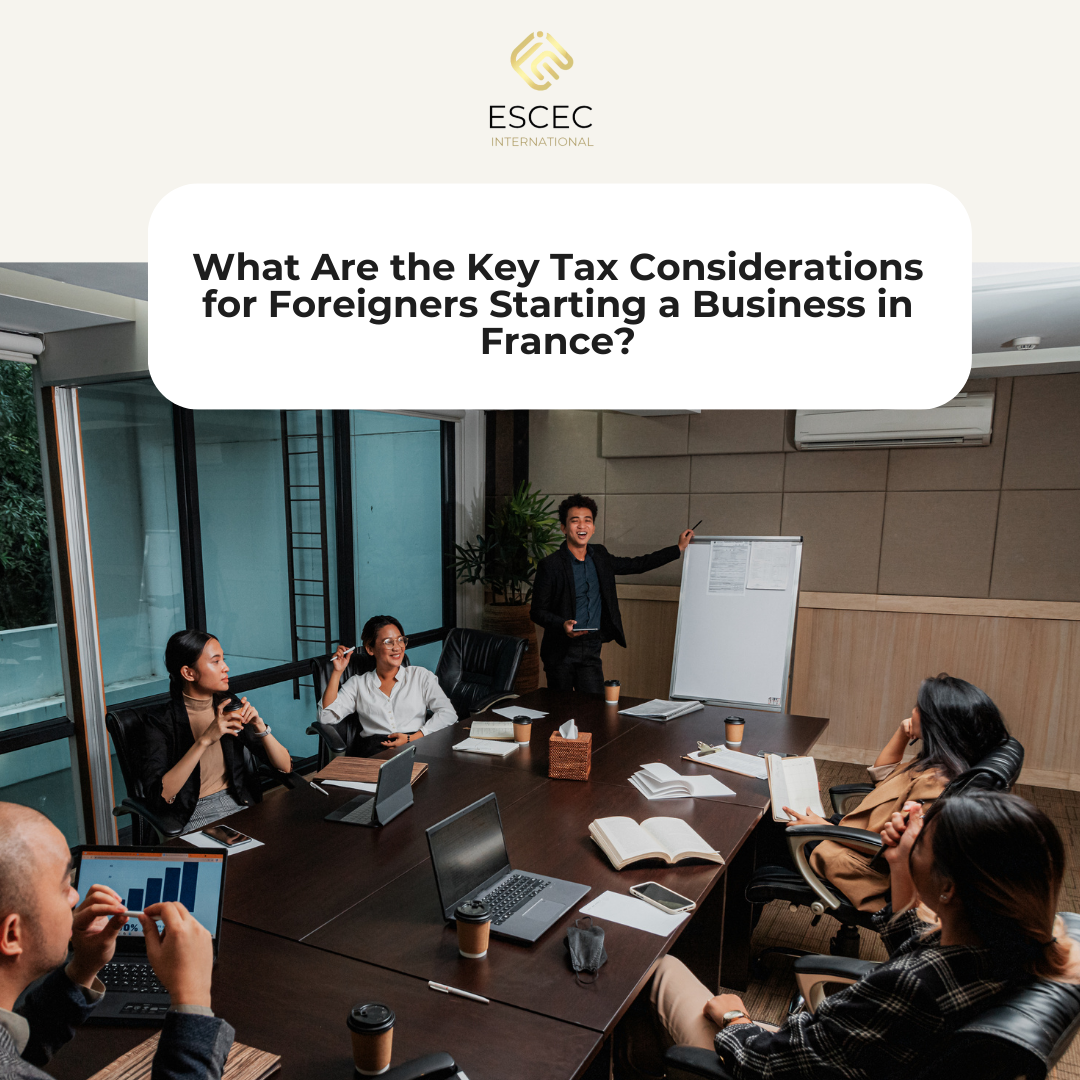What Are the Key Tax Considerations for Foreigners Starting a Business in France?
Embarking on the journey to start a business in France offers exciting opportunities thanks to the country’s strategic location, robust economy, and vibrant market. However, the French tax system can be complex, especially for foreigners unfamiliar with local rules. Understanding the key tax considerations is crucial for compliance and for optimizing your business operations.
This guide answers the most common questions foreign entrepreneurs ask when starting a business in France.
How Does Business Taxation Work for Non-Residents in France?
When foreigners start a business in France, their tax treatment differs from residents. Non-resident entrepreneurs face specific obligations depending on:
-
The type of business entity created (sole proprietor, SAS, SARL, etc.)
-
The nature of their activities in France
Knowing how these rules apply to you helps avoid double taxation and ensures smoother compliance.
Do Foreigners Pay Both Personal and Corporate Taxes in France?
Yes, but it depends on your business structure:
-
Sole proprietors / freelancers → Income is taxed as personal income tax (IR).
-
Corporations (SAS, SARL, etc.) → Profits are taxed at the corporate income tax (IS) level. Then, shareholders also pay personal tax on dividends, which may lead to double taxation.
What Taxes Do Foreign Entrepreneurs Need to Pay in France?
Foreign business owners must be prepared for several French taxes, including:
-
Corporate Income Tax (Impôt sur les Sociétés) → Standard rate between 15%–25% depending on income and size.
-
Value Added Tax (VAT – TVA) → Applied to most goods and services.
-
Social Contributions → Employers must pay social security contributions for employees.
-
Local Business Tax (Cotisation Foncière des Entreprises – CFE) → Based on business premises and location.
What Is the Difference Between SAS and SARL Taxation in France?
Société par Actions Simplifiée (SAS)
-
Flexible management structure, popular with startups.
-
Subject to corporate income tax (IS).
-
Dividends taxed again as personal income.
Société à Responsabilité Limitée (SARL)
-
Similar to a limited liability company, often used for SMEs.
-
Also taxed under corporate income tax (IS).
-
Dividends subject to personal taxation.
-
May offer different social security treatment for owners depending on their role.
👉 Choosing between SAS and SARL depends on flexibility, growth goals, and social tax planning.
Do You Need a French Tax Identification Number (TIN) to Start a Business?
Yes. A Tax Identification Number (Numéro Fiscal) is essential for all tax-related activities in France, including:
-
Registering your company
-
Filing tax returns
-
Paying taxes
-
Communicating with French tax authorities
Foreigners can obtain a TIN by registering with the Service des Impôts after creating their business.
How Do Foreign Entrepreneurs Register for Taxes in France?
To properly register, you need to:
-
Choose a business structure (SAS, SARL, micro-entreprise, etc.)
-
Register with the CFE (Centre de Formalités des Entreprises)
-
Obtain a TIN from the local tax office
-
Set up VAT registration if turnover exceeds thresholds
-
Understand social contributions if hiring employees
FAQ: Common Questions About Taxes for Foreigners in France
Do expats always pay both corporate and personal taxes?
Yes, if they run a corporation. Profits are taxed at corporate level, and dividends/salaries are taxed as personal income.
What is the corporate tax rate in France?
Between 15% and 25%, depending on taxable income and company size.
Are social contributions mandatory for foreigners?
Yes. If you hire employees, you must pay social security contributions (healthcare, pensions, unemployment).
Do foreigners need to register for VAT in France?
Yes, if your turnover exceeds the VAT thresholds. Registration can be done through the local tax office or online.
Which is better for foreigners: SAS or SARL?
-
SAS → More flexible, attractive to investors and startups.
-
SARL → Better suited for small/medium businesses, with different social tax implications.
What Should Foreign Entrepreneurs Remember About French Taxes?
-
Understand how non-resident taxation works
-
Choose the right structure (SAS vs SARL) for tax efficiency
-
Obtain a French Tax Identification Number (TIN) early
-
Be prepared for corporate, VAT, social, and local taxes
-
Register correctly to avoid penalties
Consulting a French tax professional is often the best way to ensure full compliance and optimize your tax burden.

